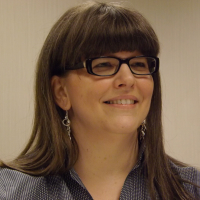It’s hard for non-Israelis to fully grasp the enormous role that the military plays in Israeli society. For mainstream, non-ultra-Orthodox Jews, one’s military service is, or is conceived of as, the formative experience of one’s early adulthood. Just as Americans of a certain class discuss going to college—unquestioned, necessary, crucial to everything that comes next—so do Israeli Jews talk about the army, with the added sense that the soldier is caring not only for his or her individual future, but for family, country, and in a larger sense, the entire Jewish people.
Which is why it’s genuinely remarkable when someone refuses to serve.

Natan Blanc, a 19 year old from Haifa, has been refusing since November, in keeping with an understanding that he began to formulate four years ago during Israel’s Cast Lead operation in Gaza. Called up for duty, Blanc informed his draft board that he would not serve, and was immediately sentenced to ten days in military prison. He released this statement at the time:
I began thinking about refusing to [be] conscripted into the Israeli Army during the “Cast Lead” operation in 2008. The wave of aggressive militarism that swept the country then, the expressions of mutual hatred, and the vacuous talk about stamping out terror and creating a deterrent effect were the primary trigger for my refusal. Today, after four years full of terror, without a political process [towards peace negotiations], and without quiet in Gaza and Sderot, it is clear that the Netanyahu Government, like that of his predecessor Olmert, is not interested in finding a solution to the existing situation, but rather in preserving it….
As citizens and human beings, [we] have a moral duty to refuse to participate in this cynical game. That is why I have decided to refuse to be inducted into the Israeli Army on November 19, 2012.
In the meantime, Blanc has repeated his refusal and been sentenced six times, for two-three weeks at a time. As +972 reported on Wednesday:
In accordance with military regulations, Blanc is being sentenced by medium-level officers in short disciplinary proceedings, sent to prison, then back to the induction base, and then tried again. There are no real limitations to the number of times this process can repeat itself, in what has already been described by Amnesty International and several others human rights NGOs in other cases as arbitrary sentencing. Blanc is sticking to his refusal and says he won’t consider turning to the military psychiatrist [note: a course taken by many who don’t want to serve in the IDF] as an alternative route to his declared and principled refusal.
For the most part, Israel tries to keep cases such as Blanc’s quiet (there are of course many other examples, both new draftees and reservists), and one can see why: The less attention paid to refuseniks, the less influence they’re likely to have on others, and the less impact their sacrifice will ultimately have on the society they’re trying to change.
Many Israeli Jews—even many leftwing Israelis, even many active in peace and co-existence efforts—would bristle at my description of Blanc’s actions as a sacrifice. “I’m sure they’re having a very nice time resting in their jail cells,” a decidedly leftwing friend once said to me about an earlier group of conscientious objectors, “while other people do their jobs.”
But sacrifice it is. The social and often familial cost is huge (witness the off-the-cuff response of my leftwing friend, and extrapolate that out to your entire high school class, their parents, and every Seder you will ever attend), and the impact that Blanc’s decision will have on his future opportunities is equally vast. If he stays in Israel, virtually every job Blanc ever applies for—from bus boy on up—will inquire about his military service, and when it transpires that he refused to serve and did time for it—well let’s just say that this young man knowingly threatened his career trajectory and entire life’s earnings before he was even at the starting gate.
Full disclosure: I have extensive Israeli family, and one family member was recently drafted. By and large, these are people who find the occupation anathema and who consistently vote for leftist parties—one has been known to vote for the joint Jewish-Arab Communist party. As far as I know, the notion of refusing service has never been seriously considered.
I do not judge my family. I live in America because my husband and I could no longer accept Israel’s demand for military service as moral, and we chose to lift that choice—Blanc’s choice—from our children’s shoulders. I don’t know if our family judges us. I’ve chosen love over clarity of vision.
While serious arguments can be made against draft resistance in a nation so often in need of defending itself, I have enormous respect for Blanc, and wish him nothing but the best. Bravery takes many forms.






